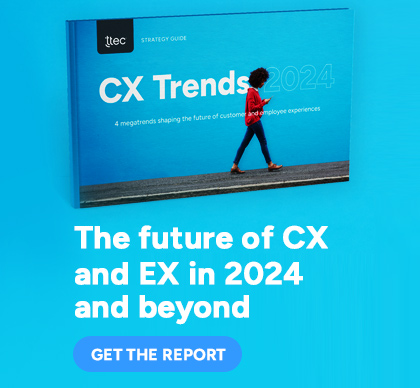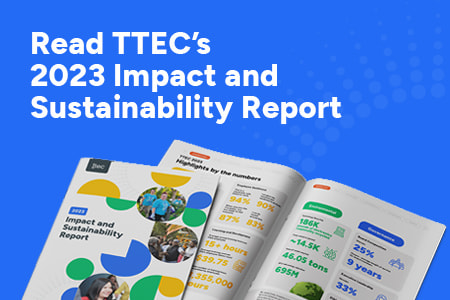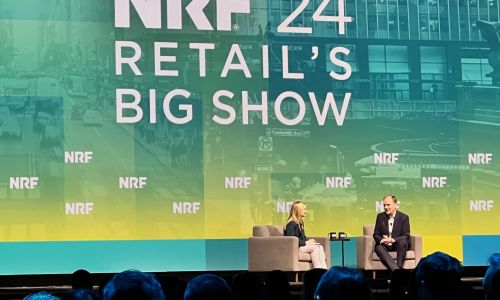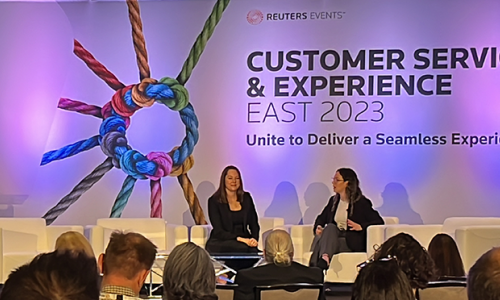Because consumers have grown accustomed to getting what they want when the desire strikes, many telecoms must now struggle to satisfy mounting expectations and improve reputation simultaneously. As Vodafone, one of the world’s leading mobile communications providers, began to explore the evolving role of retail in the telecom industry, company leaders examined market trends, potential needs, and competitor moves to determine the appropriate path toward future success.
For Vodafone, which serves nearly 360 million global customers in more than 30 countries, research confirmed that customers are dissatisfied with their mobile retail interactions. A majority describe the experience to be one of impersonal, aggressive selling that lacks relevancy and fails to instill confidence in continued support post-sale. In-store staff echoed this sentiment. They admitted that they felt ill-prepared to sell the proposition and convey compelling messages to credibly prove why Vodafone was the ideal choice. However, additional research about competitors showed that Vodafone was not alone. While most telecoms are focused on increasing innovation and technology credibility, few have yet to simplify the inherent complexity of the market.
The retail experience gets an upgrade
In response to the research, Vodafone chose to pursue an updated retail experience that meets the changing needs of its consumers across all 15,000 store locations. Company executives recognized the opportunity for staff to engage consumers directly in the stores to serve as trusted advisors and help subscribers navigate the complex industry with ease and simplicity. In-store activity also affords Vodafone the chance to explain network advantages and reassure customers that the brand will continue to source all post-sale support as needed.
Vodafone focused on consumers’ desire to research devices easily and play with live versions in-store. Giving consumers the power to test products and talk to staff during the purchase process enables them to feel confident that they’ve made the right choice.
The company’s legacy store design concept was outdated and varied widely by market. It created a new store design concept to transform not only the look and the feel of the store, but also how consumers interact with Vodafone’s products and people.
The physical rollout aimed to engage and support consumers at each of the three basic lifecycle touchpoints: research, purchase, and use. The layout was changed to improve the flow of customers. In addition, new employee tools include an online appointment booking system for customers planning to visit the store, back-end systems for workforce and visual merchandise management, and mobile payment mechanisms. Each solution was integrated to support consistency and satisfaction throughout all markets.
Before Vodafone could effectively introduce its new physical approach, the brand had to nurture employee mindset. The company worked with rogenSi (a TeleTech company) to equip front-line retail workers with the knowledge and training necessary to deliver the upgraded in-store experience.
Investing in employees to realize customer-centric vision
Though the physical component of this updated experience carries great weight, the people driving the innovation represent an essential asset on the path toward competitive differentiation. Retail employees underwent one of three training programs to ensure each understood their role within the retail space and how to achieve the goals associated with their position.
Previous development programs focused on some sales skills, but were primarily induction, product, promotion, or process specific. These new, highly experiential training programs, however, offer participants the opportunity to learn new skills by sharing models and best practice tools and techniques. they can then gain insight into their strengths and weaknesses. Skill set development also helps employees build the confidence, motivation, and resilience necessary to take personal responsibility for their state and actions, thereby enabling them to deliver exceptional levels of service in both good times and in bad.
Each training program focused on enhancing the participant’s current mindset and equipping him or her with the skills necessary to carry out Vodafone’s transformed vision. They are customized to the unique skills and goals of each position.
Greeters: Spanning two days, this program conveyed key responsibilities of the greeter role, teaching participants how to embody Vodafone’s ideal behaviors. For example, greeters learned how to connect with new and existing customers quickly so they may build rapport and understand each customer’s core needs. Participants also learned how to monitor team positioning to ensure the right people are on hand and to facilitate smooth customer handover to the appropriate associate. Greeters also maintain momentum and observe customer satisfaction levels so they may provide feedback to others as needed.
Sales advisors: This three-day training session focused on mindset and how to get the most from every customer interaction within the new store environment. This program also defines Vodafone’s new retail vision and explains how employees can embody required behaviors. It looks at each stage of the sales or service opportunity and provides participants with the skills, tools, and processes necessary to gain quick commitment from the customer in question. Employees learn how to develop rapport with new and existing customers quickly, reproduce their best days consistently, feel confident, and access their ability under pressure, particularly when customer satisfaction and retention are at risk.
Vodafone ran its initial transformation pilot program in Italy. Because Italy represents an almost entirely franchisee market—92 percent of all stores are owned and operated by franchisees rather than Vodafone—the brand needed to convince this market that the training programs were worth their time. Vodafone invited influential franchisees to attend showcase training days to experience the quality of these sessions and ease strained relationships. Once franchisees and store owners recognized how helpful such training can be, leaders began to roll out sessions throughout the market. Ultimately, more than 85 participants said they’d recommend their course to colleagues. Net Promoter Score (NPS) also grew 22 percent in the three months after implementation, indicating significant improvement in customer satisfaction and the potential for increased revenue.
Building on the success of the Italy pilot, Vodafone has rolled out the program to nearly 5,000 employees in more than 17 countries, highlighting the potential for continued success. Vodafone recognizes that mindset holds the key to delivering this cultural change and driving more customer service oriented behaviors in-store. The brand will continue to roll out training throughout its remaining markets and sustain learning by building an online tool and other such collateral to ensure staff maintains this new vision.






